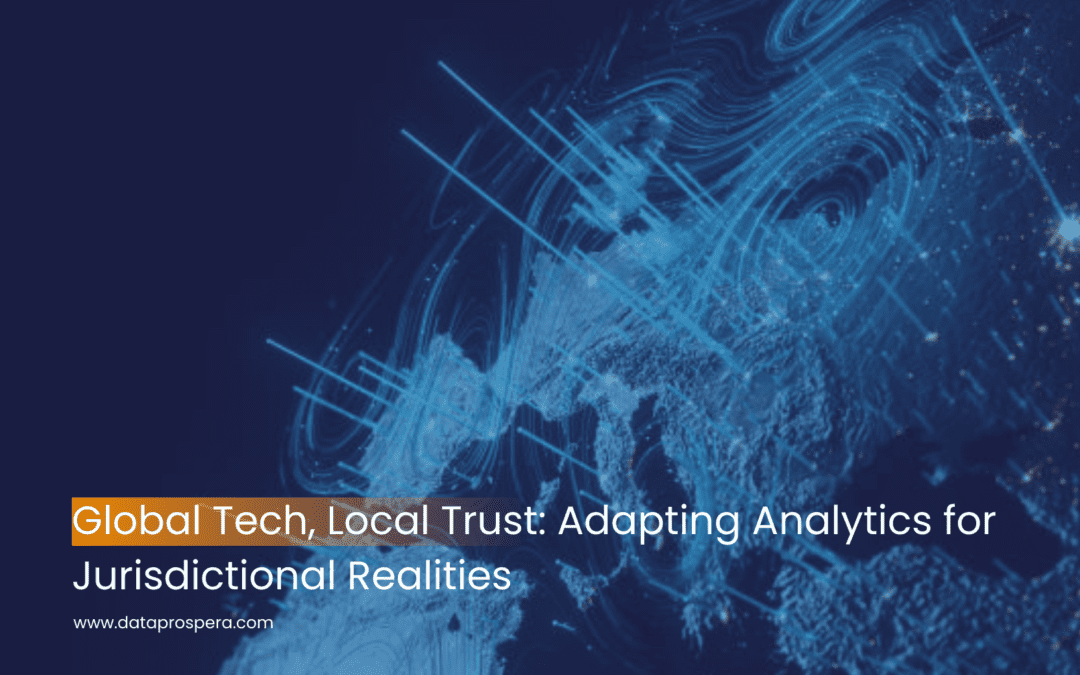As businesses expand across borders and operate in increasingly regulated environments, the challenge of delivering consistent global analytics while respecting local laws and expectations has never been greater. Balancing technological capability with jurisdictional compliance is now a defining challenge of enterprise-scale digital operations.
This blog explores how organizations can adapt their big data analytics and AI-driven insights to meet diverse regulatory, cultural, and legal demands in different countries—building local trust while leveraging global scale.
The Need for Jurisdictional Adaptation in Analytics
Every jurisdiction imposes its own set of data protection and privacy regulations. From the European Union’s GDPR, to Indonesia’s Personal Data Protection (PDP) Law, and China’s PIPL, companies must respect a growing landscape of laws that govern where and how data can be collected, stored, processed, and analyzed.
At the same time, cultural expectations around privacy, data sharing, and digital trust vary widely. An analytics strategy that works well in one country may raise concerns or even be illegal in another.
Learn more about Data Sovereignty in AI Strategy
Key Challenges in Adapting Analytics
- Data Residency and Localization
Some jurisdictions mandate that citizen data must be stored or processed within the country. This requires cloud providers and data platforms to establish local infrastructure or adopt hybrid models. - Consent and Data Collection Norms
Consent mechanisms need to be aligned with local laws, and AI models must ensure data minimization and transparency to earn user trust. - Real-Time Compliance Monitoring
Global companies must build systems that continuously audit and adjust data use based on changing local laws. - Ethical AI and Bias Mitigation
Analytics models should reflect cultural and societal norms. Avoiding bias and ensuring explainability are vital for cross-border deployments.
See how Explainable AI supports regulatory transparency.
Solutions: How to Adapt Analytics Across Jurisdictions
1. Federated Analytics Architectures
Decentralize data processing to occur within local environments while sharing only aggregated, anonymized insights globally. This respects data localization laws without sacrificing analytical capabilities.
2. Policy-Aware Data Pipelines
Build pipelines that automatically enforce data handling rules based on the source country’s regulatory profile. This includes encryption, access control, logging, and localization.
3. Geo-Fencing and Data Tagging
Tag data based on its origin and apply geo-fencing techniques to ensure that sensitive datasets never leave the jurisdiction without proper authorization.
4. AI Ethics and Local Input
Engage local stakeholders and regulatory bodies when deploying predictive models. Incorporating regional feedback improves trust and cultural relevance.
Strategic Benefits of Jurisdictionally Adapted Analytics
- Regulatory Trust: Demonstrate compliance to authorities and avoid legal penalties.
- Customer Confidence: Build deeper relationships with local customers who trust your commitment to data privacy.
- Operational Resilience: Avoid service disruptions or legal action by proactively managing compliance.
- Scalable Growth: Lay the groundwork for entering new markets with a jurisdictionally aware analytics framework.
Related: Building Resilient IT Infrastructure Amidst Data Localization Mandates
Conclusion
Adapting analytics for jurisdictional realities isn’t just about staying legal—it’s about building trust, enabling long-term growth, and showing respect for the communities and markets you serve. In a world of global tech and local trust, businesses that align data practices with local laws and cultural expectations will lead the way.
Ready to optimize your analytics strategy for cross-border success? Contact Dataprospera to design scalable, compliant, and culturally aware solutions.


Recent Comments